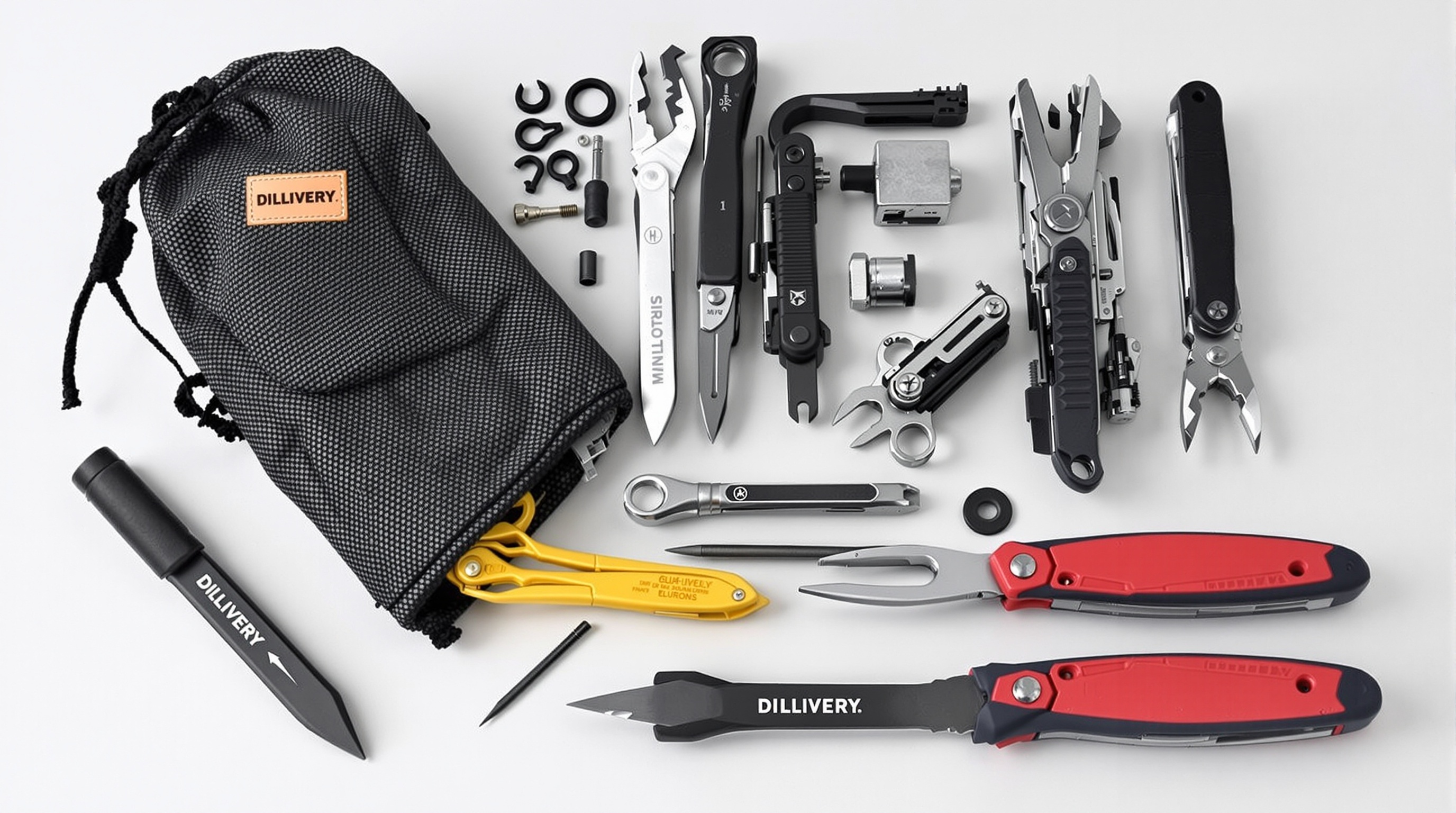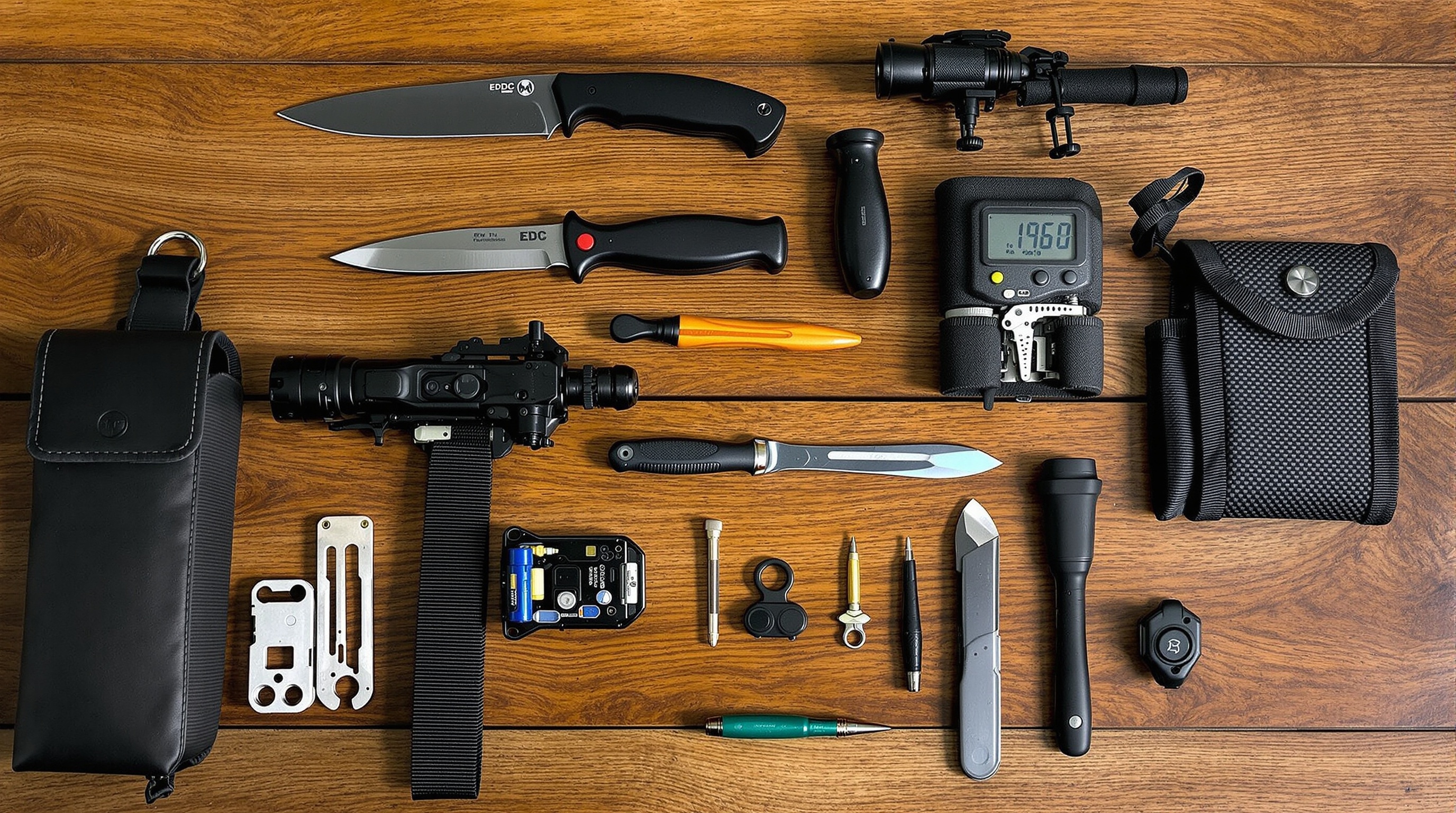Unconventional Living: Redefining Success and Freedom in the Modern World
Discover how unconventional living breaks away from societal norms, embracing freedom, minimalism, and authentic success. Explore alternative lifestyles like digital nomadism, van life, and off-grid living for a more intentional life.

Unconventional living is a lifestyle choice that breaks away from societal norms to pursue personal freedom, authenticity, and fulfillment. In a world increasingly shaped by remote work, minimalism, and alternative income streams, more people are rejecting traditional paths like 9-to-5 jobs, mortgages, and materialism. Instead, they’re crafting lives aligned with their values—whether through van life, digital nomadism, homesteading, or micro-entrepreneurship. This guide explores what unconventional living is, why it’s gaining momentum, and how you can design a sustainable life outside the status quo.
What Is Unconventional Living?
Unconventional living refers to a lifestyle that diverges from societal norms in favor of greater personal authenticity, freedom, and fulfillment. Rather than following predefined milestones—such as a 9-to-5 job, owning a suburban home, or adhering to traditional career ladders—individuals embracing this lifestyle seek alternative paths that better align with their values, passions, and goals.
Unconventional living may involve digital nomadism, minimalism, off-grid living, tiny house living, van life, career pivoting, or pursuing entrepreneurship over employment. It’s not defined by a single formula, but rather by the intentional departure from expectations that don’t serve an individual’s well-being or aspirations.
People who choose this path aren’t necessarily rejecting society but are realigning their lives to prioritize experiences, personal growth, and autonomy over conventional success metrics.
Breaking Away from Societal Norms
At the heart of unconventional living is the conscious decision to challenge societal expectations. These norms often include finishing school, getting a stable job, buying a home, starting a family, and retiring at 65. While these milestones work for many, they don’t resonate with everyone.
Breaking free involves questioning the assumptions that underpin these paths. For example, must success be measured by job title or income? Is happiness dependent on material wealth? By asking such questions, individuals begin to differentiate between inherited beliefs and personal truths.
This divergence often comes with social resistance—family disapproval, peer judgment, or fear of financial instability. However, those who persist often find greater alignment between their inner values and outer lives.
Personal Authenticity vs. Conventional Expectations
One of the most compelling reasons people choose unconventional living is the desire to live authentically. Conforming to societal norms can lead to a life that feels performative or disconnected from one’s true self. Personal authenticity means making choices that reflect who you are, not who others expect you to be.
For many, this involves exploring passions that don’t fit within traditional frameworks. It may mean traveling the world while working remotely, choosing to remain child-free, or pursuing a creative profession over a corporate role. These decisions require courage, especially when they don’t receive validation from mainstream society.
Unconventional living encourages people to prioritize their values, passions, and well-being—even when doing so disrupts the status quo.
The Modern Context of Unconventional Living
In today’s interconnected and digital world, unconventional living is more accessible than ever. The rise of remote work, the gig economy, and online entrepreneurship has opened doors to lifestyle flexibility that was once unimaginable.
Additionally, cultural shifts have redefined success to include emotional wellness, time freedom, and purpose-driven work. Millennials and Gen Z, in particular, are at the forefront of this change, often valuing experiences over possessions and autonomy over security.
The COVID-19 pandemic accelerated this trend, revealing the limitations of traditional routines and prompting many to reassess their priorities. As a result, interest in unconventional living—from van life to homesteading—has grown rapidly in recent years.
Examples of Unconventional Living
To better understand this lifestyle, it helps to explore real-world examples:
- Digital Nomads: Professionals who work remotely while traveling the world, often living in short-term rentals or co-living spaces.
- Van Lifers: Individuals who convert vans into mobile homes to embrace a minimalist, travel-centered lifestyle.
- Tiny House Dwellers: People who intentionally downsize to live in small, efficient homes, often off-grid and debt-free.
- Intentional Communities: Groups of individuals who live together based on shared values, such as sustainability or cooperative living.
- Alternative Career Builders: Creatives, freelancers, or entrepreneurs who craft unique income streams outside traditional employment.
These examples highlight the diversity of unconventional living, demonstrating that it is less about any single model and more about intentionality, flexibility, and alignment with personal values.
Common Misconceptions
Despite growing acceptance, unconventional living is often misunderstood. Some common myths include:
- “It’s just a phase.” Many assume these lifestyles are temporary, when in fact, they can be long-term and deeply fulfilling.
- “You have to be rich to live unconventionally.” While financial flexibility helps, many live unconventionally with modest means through frugality, remote work, or bartering systems.
- “It’s irresponsible.” Choosing a non-traditional path doesn’t equate to avoiding responsibility; it often requires more planning, discipline, and self-awareness than conventional paths.
- “It’s lonely.” On the contrary, many find deep connections within communities of like-minded individuals who share similar values.
Understanding these misconceptions is key to appreciating the legitimacy and richness of alternative lifestyles.
The Role of Courage and Intention
Perhaps the most vital elements of unconventional living are courage and intention. It takes bravery to question norms, face uncertainty, and redefine success on your own terms. But without intention, unconventional living can become directionless.
Those who thrive in this lifestyle usually have a clear sense of purpose, whether it's personal freedom, creative expression, sustainability, or community building. They are willing to make trade-offs—like giving up stability for flexibility—in pursuit of a more meaningful life.
In short, unconventional living is less about rebellion and more about choice. It’s about crafting a life that reflects who you truly are, even if that life looks nothing like the one society expects.
Financial Freedom Through Unconventional Living
One of the most compelling aspects of unconventional living is its potential to redefine what financial success looks like. While mainstream living often equates success with high income, mortgages, and consumerism, alternative lifestyles can offer a path to financial freedom through minimalism, intentional spending, and creative income generation.
Budgeting on Your Terms
Alternative lifestyles often require a shift in financial priorities. Rather than budgeting for car payments, rent in expensive urban centers, or luxury consumer goods, individuals may focus on essentials, experiences, and long-term sustainability. For example:
- Van life enthusiasts often eliminate rent or mortgage expenses, focusing instead on fuel, maintenance, and campsite fees.
- Tiny house dwellers may invest upfront in construction but enjoy drastically reduced utility and maintenance costs.
- Digital nomads can take advantage of geographic arbitrage, earning in strong currencies while living in countries with lower costs of living.
The key is designing a budget that aligns with your values and lifestyle choices, rather than societal expectations.
Sustainable Income Streams
Unconventional living doesn't mean sacrificing financial stability—it means redefining it. Many who choose an alternative path create multiple income streams that offer both flexibility and autonomy. Popular approaches include:
- Remote work and freelancing: Digital skills such as design, writing, coding, or marketing can be monetized online, allowing for location independence.
- Passive income: Investments, royalties from creative work, or rental income (even renting out your own tiny home or van) can provide ongoing financial support.
- Micro-entrepreneurship: Selling handmade goods, offering consulting services, or teaching online courses are all viable ways to sustain an alternative lifestyle.
Diversification is key. By avoiding reliance on a single employer or traditional career path, individuals can build a more resilient financial foundation.
Investment in Experiences Over Possessions
A common thread among unconventional lifestyles is the prioritization of experiences over material goods. This mindset shift can significantly impact financial health:
- Reduced consumer spending leads to higher savings rates.
- Fewer possessions mean lower maintenance, storage, and replacement costs.
- Experiences (like travel, community events, or personal development) often provide greater long-term satisfaction and well-being.
This intentional approach to spending allows individuals to stretch their money further while aligning with their values.
Navigating Financial Uncertainty
While unconventional living offers many financial benefits, it also requires adaptability and proactive planning. Without traditional employment structures, individuals must often take responsibility for:
- Health insurance: Independent coverage may be necessary.
- Retirement savings: Without employer-sponsored plans, self-directed IRAs or other vehicles become essential.
- Emergency funds: With income volatility, having 3–6 months of expenses saved is critical.
Financial literacy becomes even more important in alternative lifestyles, as does the ability to forecast, plan, and pivot during uncertain times.
Resources and Tools for Alternative Financial Planning
To support financial well-being, many unconventional livers turn to tools and communities designed for nontraditional paths:
- Budgeting apps such as YNAB (You Need A Budget) or Mint help manage irregular income.
- Online platforms like Upwork or Fiverr provide freelance job opportunities.
- Financial independence communities (e.g., FIRE movement) offer frameworks for living below your means and investing for early retirement.
- Alternative housing networks, such as tiny house forums or van life groups, provide shared knowledge on cost-saving strategies.
Learning from others who have successfully navigated this path can significantly shorten the learning curve and reduce financial risk.
Challenging the “Broke Bohemian” Stereotype
A major misconception about people living unconventionally is that they are financially unstable or irresponsible. In reality, many are redefining success in a way that prioritizes autonomy, purpose, and sustainability over traditional wealth markers.
By strategically managing their finances, investing in skills, and building unique income streams, unconventional livers often achieve a level of financial independence that many traditional earners struggle to reach.
Unconventional living isn’t about rejecting money—it’s about using money as a tool to build a life that aligns with your deepest values.
Mental and Emotional Preparation
Choosing to live unconventionally requires more than just a shift in external circumstances—it demands a deep internal transformation. Mental and emotional readiness is essential for navigating the uncertainties, criticisms, and personal doubts that often accompany non-traditional paths. This section explores the psychological groundwork necessary to embrace and sustain an unconventional lifestyle.
Cultivating Self-Awareness
The first step in mental preparation is developing a high level of self-awareness. Understanding your motivations, values, and emotional triggers allows you to make aligned choices rather than reactive ones. Journaling, meditation, and honest reflection can help uncover deeply ingrained beliefs that may be unconsciously tethering you to conventional expectations.
Self-awareness also helps you distinguish between societal programming and personal truth. For example, the belief that success only comes from a 9-to-5 job may be inherited from family or culture, not from your own lived experience or aspirations.
Reframing Fear and Uncertainty
Fear is a natural response to the unknown—but it can also be a compass pointing toward growth. Rather than eliminating fear, unconventional living encourages you to reframe it. Ask yourself: Is this fear protecting me from danger, or is it preventing me from evolving?
Tools such as cognitive behavioral techniques, exposure therapy, or simply taking small calculated risks can help you build a higher tolerance for uncertainty. Embracing discomfort as part of the journey allows you to expand your comfort zone over time.
Challenging Limiting Beliefs
Unconventional living often requires dismantling limiting beliefs that have been reinforced over decades. These might include:
- “I’m not skilled enough to succeed on my own.”
- “People like me don’t live that kind of life.”
- “If I fail, I’ll lose everything.”
Replacing these with empowering beliefs—such as “I can learn what I need,” or “Failure is feedback, not final”—can shift your internal narrative and open up new possibilities. Affirmations, coaching, and participation in growth-oriented communities can significantly support this process.
Building Emotional Resilience
Resilience is the ability to bounce back from setbacks and keep going in the face of adversity. In the context of unconventional living, this means staying committed even when results are slow, when others doubt you, or when you question yourself.
To build emotional resilience:
- Develop supportive relationships with others who understand your journey.
- Practice emotional regulation techniques like mindfulness and breathwork.
- Celebrate small wins to stay motivated.
Resilience is not about being fearless—it’s about persisting despite fear.
Creating a Supportive Environment
Mental preparation isn’t done in isolation. The people you surround yourself with play a critical role in shaping your mindset. Seek out mentors, communities, or peer groups that validate your choices and share similar goals. Online forums, mastermind groups, and alternative living meetups can be powerful sources of encouragement and accountability.
Additionally, curating your information diet—what you read, watch, and listen to—can reinforce your new worldview. Replace traditional success narratives with stories of people thriving on non-traditional paths.
Embracing Emotional Autonomy
Living unconventionally often means making decisions that others don’t understand. Emotional autonomy is the ability to remain grounded in your truth even when faced with external disapproval. This doesn’t mean ignoring feedback, but rather learning to filter it through the lens of your own values and long-term vision.
Practicing emotional autonomy helps you move from people-pleasing to self-pleasing—an essential shift for those forging their own path.
Developing a Growth Mindset
A growth mindset—the belief that abilities and intelligence can be developed—is crucial for adapting to the evolving challenges of an unconventional lifestyle. Viewing obstacles as opportunities to learn rather than as signs of inadequacy fosters persistence and creativity.
This mindset also supports experimentation, a key element of non-traditional living. You may try several paths before finding one that fits, and that’s not failure—it’s refinement.
References and Influences
- Carol Dweck’s research on the growth mindset offers foundational insights into how beliefs shape behavior and outcomes.
- Brené Brown’s work on vulnerability and courage provides tools for navigating emotional exposure, which is common in non-conventional paths.
- Tim Ferriss’s “The 4-Hour Workweek” explores mental models for rejecting societal norms and creating personal freedom.
- Communities like r/simpleliving and r/digitalnomad on Reddit offer real-world examples and support for those exploring alternative lifestyles.
- Podcasts such as “The Minimalists” and “Radical Personal Finance” also provide both psychological and practical insights into living differently.
Mental and emotional preparation is not a one-time event but an ongoing practice. As you evolve, so will your mindset. The goal isn’t perfection—it’s alignment, adaptability, and authenticity.
Practical Steps to Unconventional Living
Adopting an unconventional lifestyle requires deliberate action and a willingness to challenge societal expectations. Below are practical steps to help guide your transition into a more authentic, non-traditional way of living.
Redefine Success on Your Own Terms
The first step in unconventional living is to redefine what success means to you. Traditional models often prioritize financial gain, job titles, or material possessions. Instead, consider:
- Evaluating your values: What brings you fulfillment—freedom, creativity, time with family, travel, or social impact?
- Setting intrinsic goals: Focus on goals that speak to your inner desires rather than societal milestones.
- Creating a personal mission statement: Write a sentence or two that encapsulates your life philosophy and desired direction.
Detach from Societal Expectations
Unconventional living often begins by questioning long-held norms:
- Challenge assumptions: Ask whether traditional paths like 9-to-5 jobs, mortgages, or higher education genuinely align with your values.
- Limit comparison: Social media and peer pressure can distort your perception of success. Focus inward.
- Cultivate self-trust: Build confidence in your ability to make decisions that reflect your unique identity.
Design a Lifestyle That Supports Your Values
Simply rejecting the mainstream is not enough. You must consciously design a life that aligns with your priorities:
- Experiment with alternatives: Try minimalism, nomadism, co-living, or self-sufficiency models to see what resonates.
- Build around your passions: Whether it’s art, nature, or activism, center your lifestyle around what energizes you.
- Create routines that reinforce your path: Develop daily habits that support your unconventional goals, such as journaling, digital detoxing, or community involvement.
Develop Sustainable Income Sources
Financial freedom is a critical enabler of alternative living. Explore ways to make your lifestyle economically viable:
- Freelancing and remote work: Use platforms like Upwork or Fiverr to monetize your skills.
- Passive income streams: Consider digital products, affiliate marketing, or rental properties.
- Simplify expenses: Adopt frugal living strategies that reduce your dependency on high income, such as van life, tiny homes, or homesteading.
Overcome Fear and Resistance
Stepping away from the norm can trigger fear—both internally and from others:
- Expect resistance: Friends and family may question your choices. Prepare respectful responses and set boundaries.
- Combat fear with facts: List the benefits of your unconventional choices and the risks of staying conventional.
- Join supportive communities: Engage with people who live similarly through online forums, local meetups, or retreats.
Set Unconventional Goals
Rather than traditional benchmarks, set goals that reflect your new path:
- Use non-linear planning: Embrace flexibility and serendipity rather than rigid five-year plans.
- Track experiential milestones: Measure success through experiences—like time spent in nature, meaningful conversations, or creative output.
- Celebrate small wins: Recognize progress, even if it doesn’t look like conventional achievement.
Focus Your Energy Intentionally
Unconventional living can be scattered without a clear focus. Use these strategies to stay aligned:
- Identify energy leaks: Eliminate commitments and distractions that do not align with your priorities.
- Practice intentional living: Start each day with a clear intention or goal aligned with your values.
- Limit multitasking: Focus on deep work that contributes meaningfully to your lifestyle goals.
Build Momentum Through Community
Living differently doesn’t mean living alone. Tap into the power of community:
- Connect with like-minded individuals: Find others on a similar path to share knowledge, resources, and encouragement.
- Share your journey: Blogging, vlogging, or podcasting not only inspires others but also reinforces your commitment.
- Contribute to collective change: Use your lifestyle as a model or catalyst to help others question the status quo.
By taking these practical steps, anyone can begin the journey toward a more intentional, liberated, and unconventional life.
Sustaining Your Alternative Lifestyle
Living an unconventional lifestyle can be liberating, but maintaining it over the long term requires deliberate planning, adaptability, and community support. Whether you’ve chosen to live off-grid, work remotely while traveling, or reject traditional career paths, sustainability hinges on more than just initial excitement—it demands continuous alignment between your values, goals, and practical needs.
Building a Resilient Financial Foundation
Financial sustainability is one of the cornerstones of maintaining an alternative lifestyle. This doesn’t necessarily mean accumulating wealth in a traditional sense, but rather ensuring consistent resources to support your chosen way of life.
- Diversify Income Streams: Many alternative lifestyle practitioners thrive by creating multiple, flexible income sources—such as freelancing, digital entrepreneurship, homesteading sales, or remote consulting. This approach reduces reliance on a single employer or industry.
- Minimalism and Intentional Spending: Living unconventionally often aligns with minimalist principles. Prioritizing needs over wants and reducing consumerism not only supports your values but also stretches financial resources further.
- Investment in Tools and Skills: Instead of traditional assets, many choose to invest in tools (e.g., solar panels, water filtration systems) and skills (e.g., gardening, coding, carpentry) that reduce long-term costs and increase self-sufficiency.
Creating a Sustainable Daily Routine
A sustainable lifestyle isn't just about money—it's also about your energy, time, and mental clarity.
- Balance Freedom with Structure: While flexibility is a major benefit of alternative living, too little structure can lead to burnout or stagnation. Developing a loose yet consistent daily schedule helps maintain focus and productivity.
- Prioritize Wellbeing: Physical and mental health are the engines of sustainable living. Regular rest, movement, and mindfulness practices can ward off the stress and isolation that may accompany unconventional paths.
Cultivating Supportive Communities
No alternative lifestyle thrives in a vacuum. Community is essential for emotional support, resource sharing, and long-term success.
- Find Your Tribe: Whether through online forums, local meetups, or intentional communities, connecting with others who share your values can reinforce your choices and provide practical advice.
- Exchange and Collaboration: Bartering, skill swaps, and co-living arrangements are common in alternative circles and help create a resilient support network that’s not dependent on traditional systems.
Adapting to Change
Flexibility is key to longevity. Economic shifts, personal growth, and environmental changes may require you to pivot your strategies.
- Reassess Regularly: Take time to reflect on what’s working and what’s not. Are your income sources still aligned with your values? Is your location still serving your lifestyle needs? Regular check-ins help ensure you stay on course.
- Embrace Experimentation: Part of the beauty of unconventional living is the freedom to try new things. Don’t be afraid to test different methods of earning, living, or connecting with others.
Long-Term Visioning
To sustain your alternative lifestyle, you must look beyond the present moment and plan for long-term viability.
- Set Evolving Goals: Your vision may change over time, and that’s okay. Set goals that reflect your current needs but leave room for evolution.
- Plan for the Unexpected: Emergency funds, backup plans, and flexible skills can help you weather unforeseen challenges without reverting to a lifestyle you left behind.
Resources and References
- Walden by Henry David Thoreau – A foundational text on simple and intentional living.
- The Tiny House Movement – Resources on minimal, mobile, and sustainable housing.
- FIRE (Financial Independence, Retire Early) Community – Practical advice on financial independence that complements many alternative lifestyles.
- The Art of Non-Conformity by Chris Guillebeau – A guide for those looking to live life on their own terms.
- Online Communities: Reddit’s r/simpleliving, r/vandwellers, and r/financialindependence offer peer support and inspiration.
By approaching your alternative lifestyle with strategy, community, and adaptability, you can transform a short-term adventure into a fulfilling and sustainable way of life.
Unconventional living isn’t about rebellion—it’s about intentional freedom. By stepping off the beaten path, you create space for authentic experiences, mindful growth, and financial flexibility. Whether you're considering van life, digital nomadism, or simply seeking more autonomy, the journey begins with one question: What kind of life do you truly want? Start designing it today—outside the lines.




